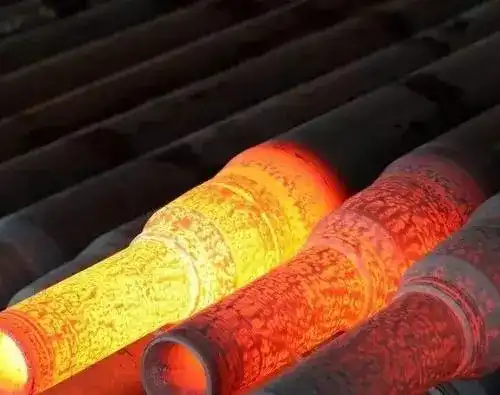Annealing Introduction
Annealing is a heat treatment process commonly used on metals, including nickel alloys, to soften the metal, reduce stress, and increase flexibility after cold working.
Importance of Recrystallization
Every metal has a recrystallization temperature, above which the metal forms entirely new grains, effectively repairing the effects of stress.
Nickel alloys generally have higher recrystallization temperatures than pure metals, They are selected for critical applications because of their excellent mechanical and chemical properties and corrosion resistance in harsh and high-temperature environments.

Annealing Process
Metals are annealed by heating above the recrystallization temperature but below the melting point, which is called the recovery phase, effectively renewing the alloy and removing the effects of cold working.
The metal is held at this temperature until the recrystallization process has reached a satisfactory level.
The final stage is controlled cooling, which allows new grains to complete their development.
Types of Annealing
The annealing process is essentially the same, but can be performed in different ways to achieve different results:
Full annealing: makes the metal as soft and ductile as possible, by cooling it slowly in a furnace, a time-consuming and relatively expensive process.
Isothermal Annealing: Similar to full annealing, the goal is to achieve optimal ductility and repair stresses in the microstructure, by rapidly cooling to 650°C and holding for a while, then air cooling, which is a faster process than full annealing.
Stress Relief: Unlike full annealing and isothermal annealing, which change the metal's microstructure, the goal of stress relief is to only repair and relieve stresses created during processing without significantly changing the material itself.
Advantages of Annealing
Annealed alloys are tougher, more resilient, and easier to process.
Annealed alloys are less brittle, greatly reducing the risk of failure, extending service life, improving safety, and reducing the cost and downtime of replacing parts.
Annealing can also increase the alloy's magnetic properties and improve its electrical performance.
Conclusion
If you are looking for a nickel alloy for your project or application, it is important to note whether the alloy has been annealed. Typically, nickel alloys are sold in an annealed form because they are tougher, more resilient, and easier to process.











